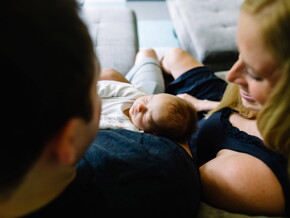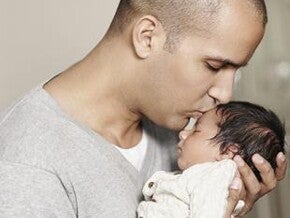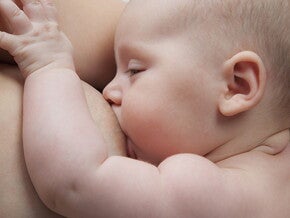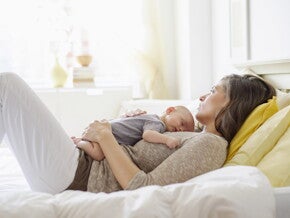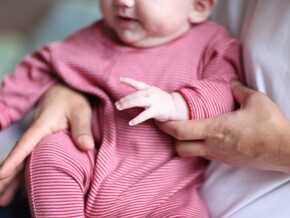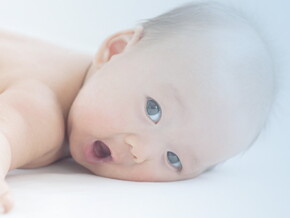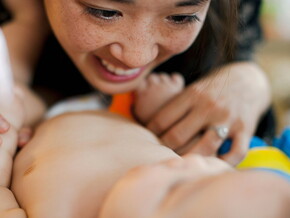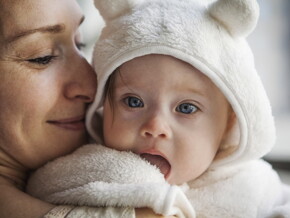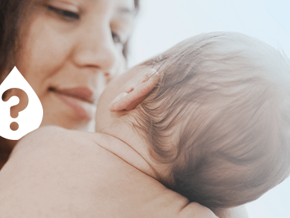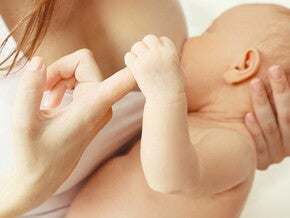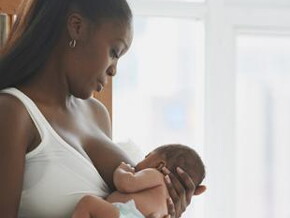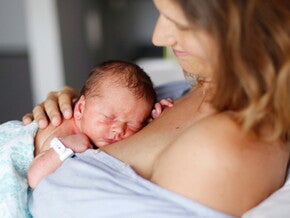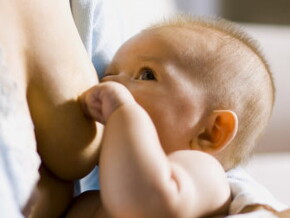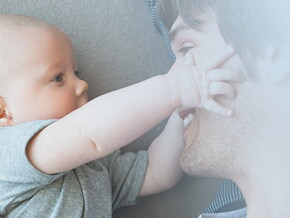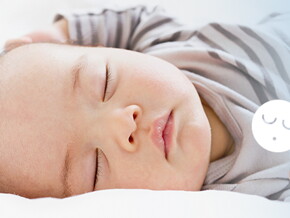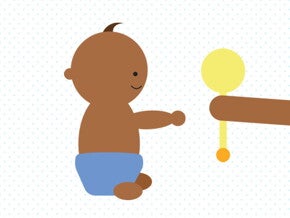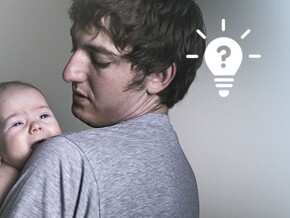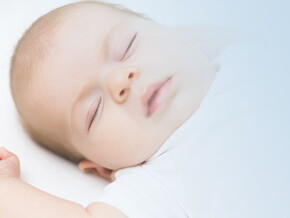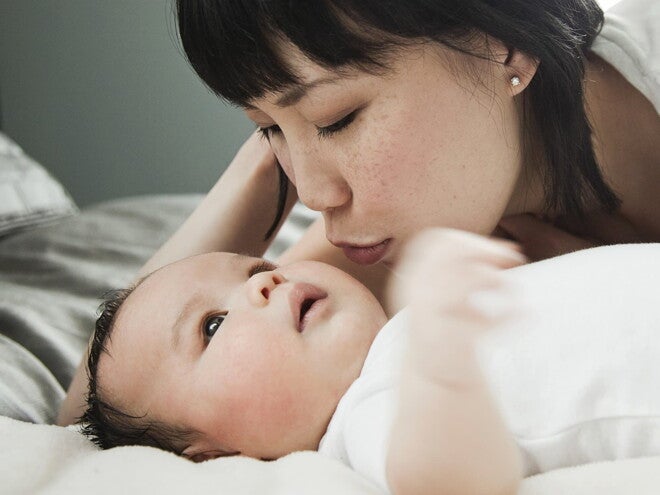
Key Concepts Covered:
Month 1 – Sense Comfort
What will you notice? The Moro (Startle) reflex will occur often, and many of her movements won’t be deliberate or controlled.
Weeks 1 and 2 will feature LOTS of sleep, but if your baby cries more and sleeps less around the 2-week mark—that’s normal, she’s just learning how to communicate. Here’s more on what’s causing your baby's crying.
But how fast is she developing? Any early checkups will allow your doctor to plot her height, weight and head circumference on a standard growth chart.
Now, here’s what can stimulate your baby’s senses to get her used to her surroundings:
Hearing
- Soothing music
- Soft sound-making toys
- Your tone (She’ll respond best to high-pitched voices)
Sight
- Mobiles
- Soft sculptures with black-and-white patterns
- Your smiling face (It helps baby focus both eyes at once)
Touch
- Soft toys
- Blankets
- Anything safe for your baby to caress
Don’t be surprised if your baby:
- Lifts her head. (Neck muscles!)
- Visually follows objects 20-25 cm away (High contrast colours come through clearest).
- Blinks at bright lights.
- Turns her head to respond to sounds and voices she recognizes.
- Grips your finger when you stroke her palm. (Grasping reflex!)
- Turns toward your finger when you rub a corner of her mouth (This rooting instinct helps her latch onto your breast for feeding).
- Recognizes you by your scent (Babies can smell breast milk).
Suggested reading
Month 2 – Read and React
Oh, hello there! Your baby’s likely even more alert now, and she’ll be taking everything in—she may even:
- Show her preferences/emotions with smiles and coos.
- Respond to familiar voices and sounds.
- Plus, like more than 50% of babies, she might actually recognize her parents!
Here’s how you can help your baby’s social skills blossom:
- Read or sing to her.
- Continue to provide bright, colourful objects (Think bold mobiles or soft stuffed toys).
- Spend some time talking and singing face-to-face. (Strengthen your bond and her body!)
- Tummy time! Let your baby kick and move around on a blanket on the floor.
What else can you expect? Well, your baby may:
- Go silent, cry or act startled in response to loud sounds.
- Make cooing sounds.
- Repeat "ooh" and "aah".
- Raise her chest and head using her arms when she’s lying face down.
- Focus on very small objects and follow (or "track") objects thanks to her developing eye muscles.
It is recommended to attend all regularly scheduled well-baby visits with your doctor in the first few years of life. The Canadian Paediatric Society recommends that, at about 2 months (8 weeks), your baby receives the Diphtheria, Tetanus, Pertussis, Poliomyelitis vaccination, the Haemophilus influenzae type b (Hib) and the Pneumococcal vaccines*. Be sure to call your child's doctor to schedule an appointment. Find out more information about childhood vaccines and your child’s immunization schedule now.
Month 3 – Build Trust
Get ready for incredible growth and psychological development!
As your baby’s routine becomes more established, she may even by less fussy. Plus, she’ll be starting to process information, like the breastfeeding position means food’s on the way or your comforting efforts mean she can calm down. This is the age when consistently meeting baby’s needs results in trust for her caregiver, an awareness of how to get attention and a growing confidence in her own skills.
To encourage communication and develop trust:
- Talk, sing, hum, play music and read to your baby.
- Encourage clear pronunciation, short sentences and simple words from all caregivers.
Here’s what else you could see, your baby could:
- Bring her hands together and reach for objects. (Coordination skills!)
- Consciously unfold tight fists.
- Suck on fingers and objects (Just another way to explore her environment).
- Practice focusing by maintaining eye contact.
- Perceive colours more clearly (She’ll like primary bright colours best).
- Focus on smaller objects.
- Begin to follow you with her eyes.
- Turn toward the sound of your voice. (Improved sound recognition!)
Remember, babies reach developmental milestones at their own pace. Talk to your doctor if you become concerned about your baby's health or development.
References
* This vaccination schedule may vary slightly depending on what province or territory you live in. Consult with your baby’s doctor to learn more about your area’s vaccination schedule.



